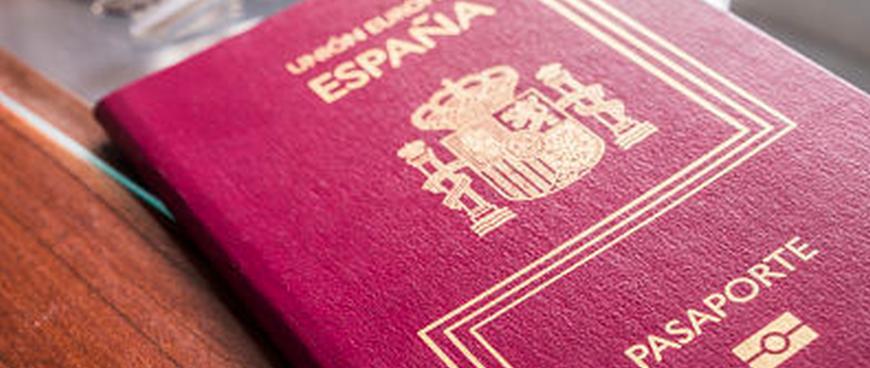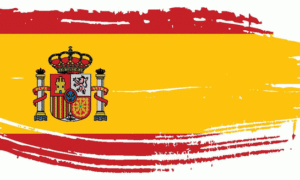(Editor’s note: This is Pt. 2 of Irina Greensitt’s two-part post with the details about acquiring Spanish citizenship. You can see Pt. 1 here.)
Brexit means most of the rights British expats took for granted as European Union citizens – for example freedom of movement – are gone. And so there are many expats amongst us who – having lived in Spain for a good few years – are now beginning to think and enquire about applying for Spanish citizenship.
Three Year Rule
As you might imagine there are circumstances in which you can lose your Spanish nationality. As an example the following extracts I’ve taken from the Spanish government website and from Article 24.1 of the Civil Code.
Spaniards who are not of Spanish origin (for example, those who have acquired Spanish nationality by residence) will lose Spanish nationality if:
• after acquiring Spanish nationality, they use for a period of 3 years the nationality that they would have renounced when acquiring the Spanish one.
• they voluntarily enter the military service or exercise a political office in a foreign state against the express prohibition of the government.
• a sentence declares that the interested party committed falsehood, concealment or fraud in the acquisition of Spanish nationality.
• persons who, habitually reside abroad, voluntarily acquire another nationality lose their Spanish nationality. The loss will occur once three years have elapsed, counting, from the acquisition of foreign nationality. (1)
• persons who, habitually reside abroad, exclusively use the foreign nationality that they had been attributed before becoming a Spanish citizen lose their Spanish nationality. The loss will occur after three years, counting, from emancipation.
(1) However, the interested parties may avoid the loss if, within the indicated period, they declare their wish to retain Spanish nationality to the person in charge of the Civil Registry.
The application for citizenship.
Having gone through the residency process, it’ll take a brave person to tackle the citizenship application. However for those brave enough, what can you expect?
The main difference is there is a little more paperwork involved and of course there is obligatory language test (DELE A2) that covers reading, listening, writing and oral. In Addition there is a cultural test (CCSE) which is not to dissimilar (and probably just as irrelevant) to the one in the UK covering culture, history, society, geography and politics.
One thing most people would agree on is that Spanish bureaucrats like things to be done correctly. Many applications submitted mainly by people who do the paperwork themselves, are sent either incomplete, contain errors or are missing vital information and therefore this can cause long delays.
Also its worth remembering that all the documents must be valid at the same time so it is vitally important that when the application is submitted all of the documents ARE VALID, apostille stamped if needed, and translated.
If they are not and a document needs requesting again then it can take time, and of course by the time you get that document the others might then be out of date.
It’s typically taking a year or more to get a decision, partly due to the fact that there are so many applicants at the moment. Immigration in the last month have assigned more people to unblock this back log.
TIP: The Spanish Authorities have one year to respond to your application. If they don’t then you can initiate an appeal by virtue of the fact that due to “administrative silence” your application is deemed rejected without good cause. It is this appeals process that can speed things up dramatically.
I am still four years away from being able to apply for citizenship. However from conversations that I’ve had the general consensus is If you are not European and have a middle level of Spanish, then yes you should apply. Pass and you will be a Spanish and EU citizen, giving you and your children some strong advantages in the future for work, movement and education.
It is undoubtedly a huge step. However – safe in the knowledge that my UK and Russian Passports are protected – it is one that I am now more inclined to take. If I do, then I shall no doubt be seeking help in the application process and would advise others to do the same.
(Contributor’s note: Thank you to Keith Gorman at LM Lawyers in Valencia who has kindly helped me with the article. If you have a questions for Keith you can email him at [email protected] but please one or two questions only. And don’t forget to mention Dispatches Europe in your correspondence OR simply leave a comment on this article and we’ll get back to you.)
Disclaimer: May I remind you that this article does not constitute legal advice and before making any decisions it is always recommended that you contact an appropriate professional advisor.

About the author:
Irina Greensitt is from the far eastern town of Khabarovsk in Russia, but lived in the United Kingdom for seven years before moving to Spain in 2014 with her husband and two young children.
Irina now runs an internet business and lists walking, travel and sailing (passing her skippers exam in 2016) amongst her hobbies.
See all of Irina’s posts here.
See more from Dispatches’ Spanish archive here.














